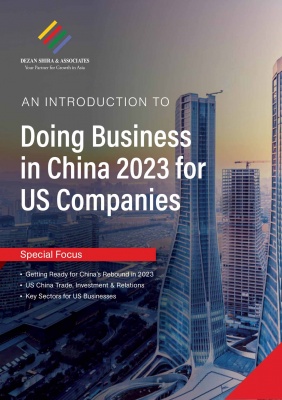Acceptable and Non-Acceptable Due Diligence in China
Attempting to overlay US laws over Chinese laws in China will lead to China compliance problems
Recent media attention as concerns the problems of several US invested consulting practices in China have led to a plethora of media attention and concerns that China is targeting foreign investors.
In fact, there are inaccurate assumptions being made within much of the media attention, including the blending of the term ‘due diligence’ with ‘collection of personal data’.
Corporate ‘Due Diligence’ is permitted in China and is standard practice, typically conducted (by qualified professionals). This includes legal, financial and operational due diligence and is intended to establish whether the target company is in legal compliance, to make sure no-one is fiddling the payroll or stealing the inventory, and that tax and financial compliance are all in order. It is a common procedure – both to ensure tax returns are accurate, audits are correct, and for larger businesses, compliance with pending IPO listings.
It is common for law and audit firms in China to jointly conduct this work. The Chinese authorities actually encourage foreign investors to be in compliance and to be self-governing. It is a standard procedure. So no problems with ‘due diligence.’
Where the China-US issue lies is two-fold: Sovereign law, and personal data collection. These have become muddled in the overall China ‘due diligence’ hysteria.
1) Firms engaged in due diligence in China are expected to refer this to apply to Chinese laws only.
For example, the Xinjiang labor issue is a US law compliance matter and not a Chinese regulatory instruction. Regardless of the political situation, foreign invested firms in China cannot apply US or other foreign law standards to their due diligence in China. They can refer to compliance with Chinese laws, but not others. Doing so, from the Chinese perspective, breaches their sovereign laws and places foreign laws above their own in China.
For practical purposes, that means if foreign investors are certain that they need to be in compliance with US laws, they’d be better off relocating production to a country that is more liberal in this respect. It is not going to work in China, where such laws are interpreted in a rather stricter manner. Abide by Chinese, not US laws when operating in China.
2) As was very well spelled out in the Peter Humphrey case a few years ago, the collection of personal data in China – and especially by foreign firms – is a no-no. China has personal data security laws in place and expects foreign investors (and Chinese businesses) to abide by them. To look at it the other way, imagine the furor if Chinese businesses in the US were found to be collecting data on US nationals. It would be seen tantamount to espionage. Well, China is no different. That red line has been well established in China and if it is crossed, it breaks the law and invites punishment.
These are the boundaries that are being discussed. Foreign investors should be aware of China’s laws and the boundaries of their scope of business. Not being in compliance with those invites problems, as does deliberately attempting to blur the lines of permissible due diligence.
After all, there are always manufacturing options elsewhere should US political pressures and its own laws infringe upon those in China and make investors uncomfortable. Due diligence in China isn’t the problem. It’s attempting to blur the distinctions that is the core of the debate.
Chris Devonshire-Ellis is the Chairman of Dezan Shira & Associates.
 An Introduction to Doing Business in China 2023 for US Companies
An Introduction to Doing Business in China 2023 for US Companies How Supporting Industries Can Benefit from Adding Vietnam to Their China+1 Strategy
How Supporting Industries Can Benefit from Adding Vietnam to Their China+1 Strategy
About Us
China Briefing is written and produced by Dezan Shira & Associates. The practice assists foreign investors into China and has done so since 1992 through offices in Beijing, Tianjin, Dalian, Qingdao, Shanghai, Hangzhou, Ningbo, Suzhou, Guangzhou, Dongguan, Zhongshan, Shenzhen, and Hong Kong. Please contact the firm for assistance in China at china@dezshira.com.
Dezan Shira & Associates has offices in Vietnam, Indonesia, Singapore, United States, Germany, Italy, India, and Russia, in addition to our trade research facilities along the Belt & Road Initiative. We also have partner firms assisting foreign investors in The Philippines, Malaysia, Thailand, Bangladesh.
- Previous Article Chris Devonshire-Ellis Visit to China: May 15-28
- Next Article China Issues Guidelines for Constructing the Western Science City









